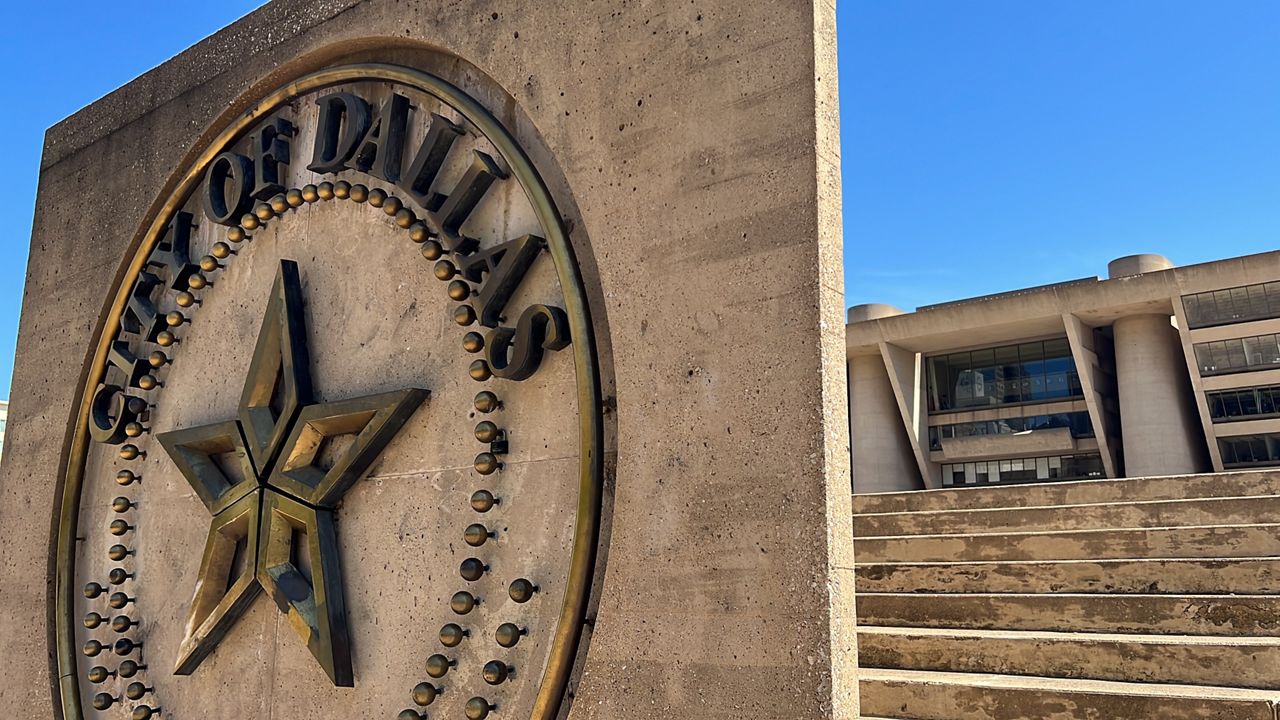DALLAS — In an effort to reduce homelessness by 25% by 2025, the White House unveiled a new initiative to address the needs of one state and five major cities, including Dallas. The launch of ALL INside aims to “build a country where every person has a safe and affordable home.”
“Our nation’s homelessness challenge, at its roots, comes down to an inadequate supply of housing. But it also intersects with mental and behavioral health, substance abuse and so many key issues,” White House domestic policy director Susan Rice said in a livestreamed virtual launch event.
According to Rice, in 2022, over 580,000 homeless people existed in the United States, and four in 10 of them identified as unsheltered — living in tents, on the streets and in cars. Earlier this year, the U.S. Department of Housing and Urban Development released $486 million in first-of-its-kind package grants along with roughly 3,300 housing grants that assisted 62 communities affected by unsheltered homelessness and homeless encampments with $22 million awarded to Dallas, $60 million to Los Angeles and $36 million to other communities across California and $60 million to Chicago. The All INside initiative, in conjunction with the U.S. Interagency Council on Homelessness and its 19 federal member agencies, will partner with state and local governments in Chicago, Los Angeles, Phoenix Metro, Seattle, the state of California and Dallas to “strengthen and accelerate local efforts to get unsheltered people into homes.”
“We are grateful to partner with you, because you have shown such clear vision, commitment, alignment of values and effectiveness in tackling the complex and difficult challenge of unsheltered homelessness,” said Rice.
Data collected from the 2022 Point-in-Time Homeless (PIT) Count showed that, on any given night, at least 4,400 people experienced homelessness in Dallas and Collin Counties, with 4,000 in Dallas County and at least 400 in Collin County. More data concluded that family homelessness decreased by over 20% since 2019, from 1,025 to 822, showing that local organizations found success in assisting families with finding alternative housing versus ending up in a shelter or encounter unsheltered homelessness.
“COVID-19 and extreme winter weather greatly impacted individuals, organizations and systems, including our homeless rehousing system,” said Joli Angel Robinson, Metro Dallas Homeless Alliance president. “Although these events have impacted all of us, the trends supported by this year’s PIT count data, are a direct result of our community’s tremendous commitment to serving our unhoused neighbors, increasing housing interventions, and building our system’s overall capacity to effectively serve those experiencing homelessness.”
In February, Mayor Eric Johnson announced the formation of the Mayor’s Task Force for HOPE — Homelessness Organizations, Policies and Encampments. The 10-member task force is expected to find, develop and then recommend “concrete solutions” to reduce homelessness along with pathways to “healthier and safer communities” in Dallas.
“I am proud of the work already done by our city and our partners to address homelessness and care for our most vulnerable residents,” Mayor Johnson said at the time. “But it is clear that people who are experiencing chronic homelessness continue to seek shelter on our streets, our sidewalks, and our underpasses that are filled with tents, sleeping bags, and waste.”
Johnson appointed three co-chairs to lead the HOPE Task Force, all of whom previously served in the city on projects involving housing, shelter services, Health care and treatment issues. Peter Brodsky, Chair of Housing Forward, Betty Culbreath, Chair of the Dallas Housing Authority and the former director of Dallas County Health and Human Services and Ellen Magnis, President and CEO of Family Gateway, make up the task force along with seven other individuals.
“We cannot afford to accept our progress to date as ‘good enough,’” Johnson added. “We still have more work to do, and together, with the help of the HOPE Task Force, we will ensure that Dallas is addressing homelessness in a way that is smart, compassionate, and considerate of the health, safety, and quality of life of all of our residents and businesses.”
The City of Dallas’ Office of Homeless Solutions incorporates a four-track strategy to tackle every aspect of homeless within the city. Track one targets the increase of shelter capacity by expanding the capacity of existing providers through contracted shelter overflow programs. Track two consists of inclement weather shelters turning entities with Chapter 45 Temporary Inclement Weather Shelter permits to provide shelter on days when the temperature drops below 36 degrees in the winter or above 100 degrees during the day with an evening temperature higher than 80 degrees in the summer. In 2021, volunteers served nearly 2,000 unsheltered people at the Kay Bailey Hutchison Convention Center in Dallas during the deadly winter storm.
Through track three, the city provides funds for security deposits, rent, utilities, incentives and other support services to prevent tenants from losing their residence. And track four invests in facilities combatting homelessness, ranging from rapid rehousing to permanent support housing.
“The City of Dallas has transformed our response to homelessness over the last several years, made possible by our coming together across public and private partnerships to make historic, targeted investments to end unsheltered homelessness,” said Mayor Pro Tem Carolyn Arnold. “One of our primary goals is ensuring that our unhoused residents have equitable access to housing resources and that we have standardized the intake processes across our system. We’re also conducting an equitable access analysis to ensure that our unhoused residents in every area of our system can continue to connect with the rehousing efforts and resources to end their homelessness.”



